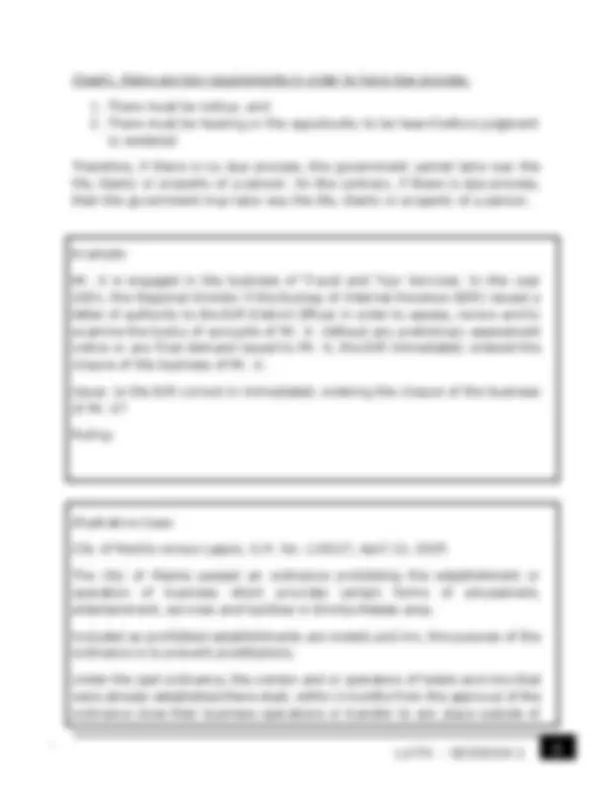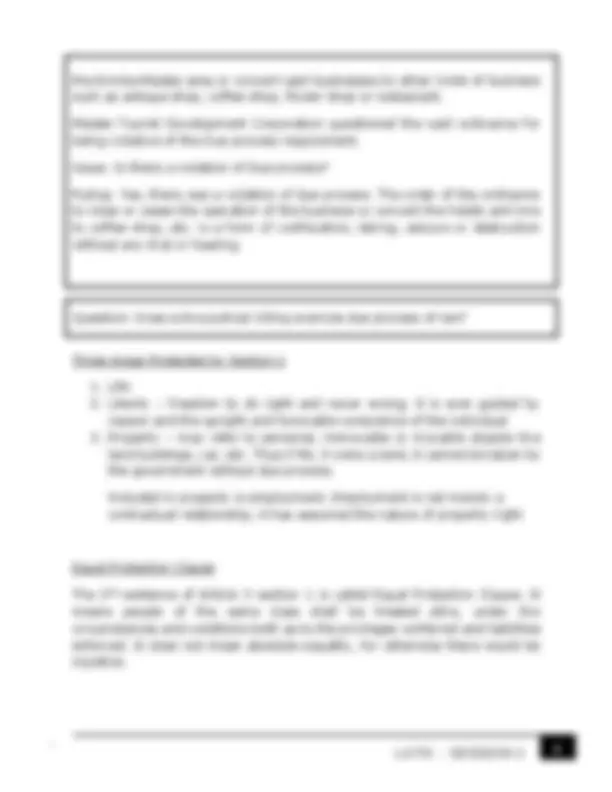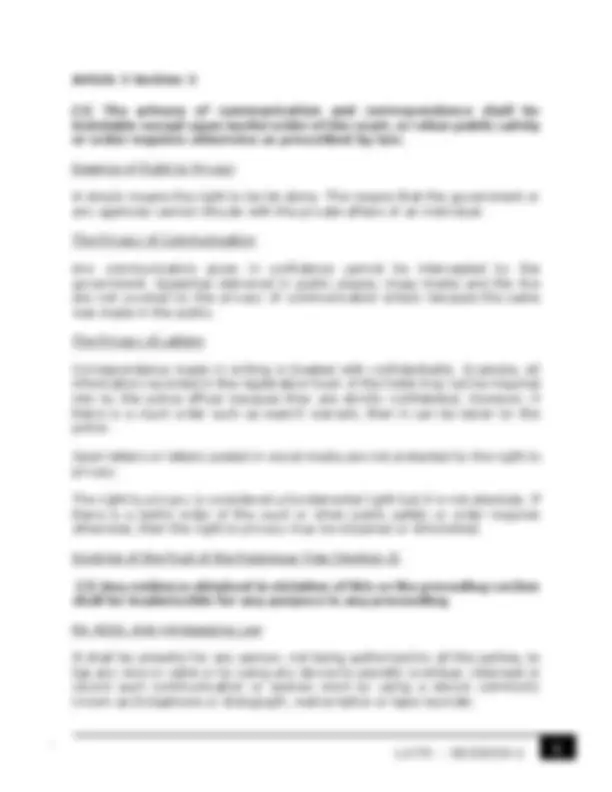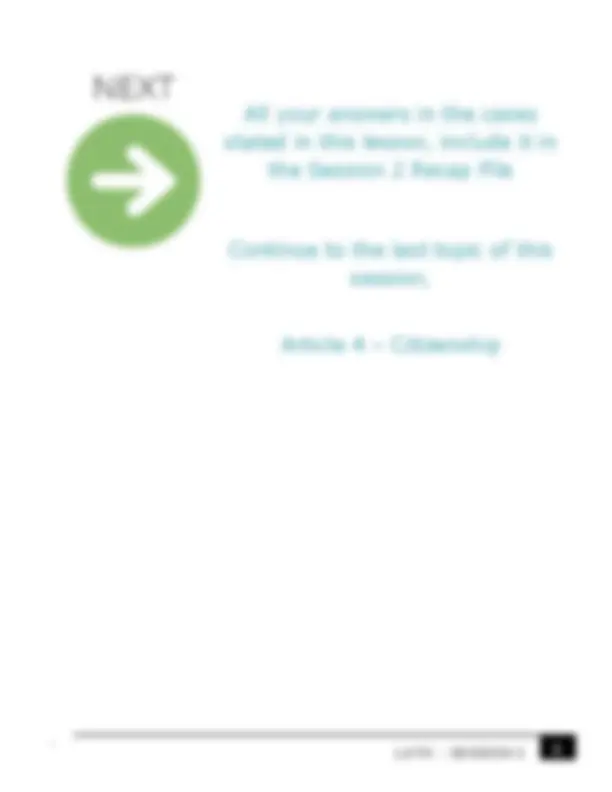-
ARTICLE 111 – BILL OF RIGHTS
Note:
There are some situational cases in this lecture, study and answer it. This will be
discussed later during the synchronous session.
• The Bill of rights governs the relationship between the individual and the
state.
• Its concern is not the relation between individuals, between a private
individual and other individual.
• What the Bill of Rights does is to declare some forbidden zones in the
private sphere inaccessible to any power holder
• The Bill of Rights is the limitation on the powers of the government.
Hence, it cannot be invoked if one who violated the same is a private
individual or entity. Use or invoke only the provisions of the Bill of rights
if the one who violated it is the government.
• The purpose of the Bill of Rights is to protect the people against arbitrary
and discriminatory use of political power. This bundle of rights
guarantees the preservation of our natural rights which include personal
liberty and security against invasion by the government or any of its
branches or instrumentalities.
Case 1:
Yrasuegi vs. Philippine Airlines, G.R. No. 168081, October 17, 2008
Facts: Mr. X is an international flight steward of the Philippine Airlines Inc.
(PAL). He stands five feet and eight inches (5’8”) with a large body frame.
Under the Cabin and Crew Administration Manual of PAL, the weight to be
maintained by all employees shall be 166 pounds. During the time he was
hired, Mr. X met the weight requirement. However, after a couple of years,
Mr. X weighed 205 pounds which is beyond the 166 pounds limit. Mr. X was
given a chance to lose weight, but instead of losing his weight, he gained
more. Thereafter, Mr. X was terminated for violating the company rules. He
filed an illegal dismissal case against PAL. One of the arguments of Mr. X is
that the company rules are discriminatory, it is not fair. In other words, Mr. X
is invoking section 1 of the Bill of Rights of the Constitution.
Issue: 1 Is Mr. X correct in invoking section 1 of the Bill of Rights against
Philippine Airlines Inc. which is a private entity?
Issue 2: Was he validly dismissed?


















